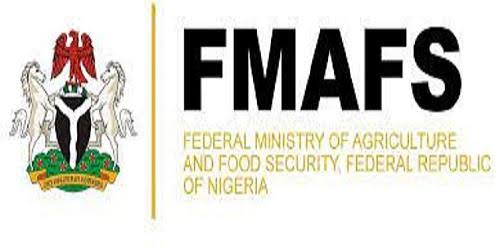
The Federal Ministry of Agriculture and Food Security (FMAFS) has clarified the circular circulating on social media about a prayer session organised by the ministry, explaining that the event was convened solely to address staff concerns following the recent, sudden deaths of several management staff and not to tackle food insecurity, as many have said.
A statement signed by the ministry’s director of information, Ikemefuna Ezeaja noted that the ministry’s attention was drawn to the internal circular issued by its human resource management department, which has been widely circulated and misinterpreted online. Ezeaja stressed that the prayer session is an initiative of the Human Resource Department to address the emotional well-being of staff, similar to other staff welfare initiatives such as the monthly aerobics exercise sessions, the establishment of an in-house gymnasium, and regular medical check-ups to promote overall health and productivity.
Part of the statement reads: “The prayer was specifically organised to address the apprehension among staff following the untimely and successive loss of key management personnel within the ministry. It is not unusual for staff to come together in prayer for divine protection and the session’s theme, ‘Divine Intervention for Protection and National Development,’ reflects this intent.
“It must be emphasised that this prayer session is not an official policy or strategy of the ministry to address national agriculture or food security challenges. Rather, it is a response to the heartfelt request of staff who are understandably worried by the recent tragic losses.”
The statement further reiterated that the minister has remained focused on delivering tangible and strategic programmes aimed at ensuring food and nutrition security in line with President Bola Tinubu’s ‘Renewed Hope’ agenda.
The ministry highlighted some of its key initiatives to demonstrate its unwavering commitment to strengthening Nigeria’s agricultural sector and tackling food inflation.
Under Tinubu’s administration, the ministry has taken delivery of over a thousand tractors to boost mechanised farming nationwide and has already commenced the commercialisation phase of this mechanisation project under the direct supervision of President Tinubu.
Additionally, as part of efforts to stabilise the market and cushion the impact of rising food prices, about 42,000 metric tonnes of grains and another 58,200 metric tonnes of milled rice grains were distributed through the Strategic Grain Reserve and Market Price Stabilisation Programme.
The Central Bank of Nigeria has also supported the ministry’s efforts by donating 2,150,000 bags of fertilisers, which were promptly distributed to farmers across the country to help mitigate food inflation and increase crop yields.
In a landmark financial boost, President Tinubu approved the recapitalisation of the Bank of Agriculture (BOA) to the tune of ₦1.5 trillion, enabling more farmers to access affordable financing to expand their operations and increase production.
The ministry has equally launched the National Electronic Extension Platform (NEEP), a cutting-edge digital tool designed to modernise and improve agricultural extension services for farmers across rural communities.
In addition, a revitalised cooperative sector has been prioritised through a series of training and workshops at the Federal Cooperative Colleges in both the North and South. This aims to strengthen cooperative societies and amplify their contributions to national economic development.
In collaboration with the World Bank, the ministry has earmarked $600 million for the rehabilitation of 200,000 kilometres of rural roads under the Rural Access and Agricultural Marketing Project (RAAMP) to ease the movement of farm produce and reduce post-harvest losses.
To support farmers directly, the ministry procured and freely distributed essential agricultural inputs, including fertilisers, agrochemicals, high-quality seeds and other critical resources during the planting season.
Through the National Agricultural Growth Scheme Agro-Pocket (NAGS-AP), registered farmers have received subsidised inputs to boost productivity, while a partnership with the National Identity Management Commission (NIMC) is enhancing farmer data management for better service delivery and access to government support.
The ministry concluded by reassuring the public that the prayer session is purely an internal welfare initiative to address staff concerns about sudden deaths and is in no way a substitute for the robust measures and significant strides the ministry is making to ensure lasting food security for the nation.


